Economy - ENA English
Economy
Ethiopian Daily Flight to Abu Dhabi Renews Commitment to Strengthening Ties with UAE, Says Airlines Board Chairman
Jul 16, 2025 685
Addis Ababa, July 16, 2025 (ENA)—The launching of daily passenger flight to Abu Dhabi by the Ethiopian Airlines represents a renewed commitment to strengthening the longstanding ties between Ethiopia and the United Arab Emirates (UAE), Ethiopian Airlines Board Chairman and Commander-in Chief of the Ethiopian Air Force, Lieutenant General Yilma Merdasa, said. Speaking at the inaugural flight ceremony yesterday, Lieutenant General Yilma Merdasa said the expansion is more than just an increase in number of flights, but a renewed commitment to strengthening bonds between Ethiopia and UAE. The two countries share not only close diplomatic and economic ties but also shared values and aspirations, he added. According to him, the commencement of the new route stands as a testament to the success of Ethiopian Airlines operation in the UAE and the trust earned from the government and people of UAE. This remarkable performance of Ethiopian Airlines is also a reflection of Ethiopia’s broader transformation under the visionary leadership of Prime Minister Abiy Ahmed, the Board chair noted. “This achievement is also a reflection of Ethiopia’s broader transformation under the visionary leadership of Prime Minister Abiy Ahmed... Ethiopian is, indeed, moving in the right direction, laying foundation for sustainable growth and connectivity and global relevance,” Lieutenant General Yilma stated. On his part, Ethiopia Airlines Group CEO Mesfin Tasew said the new route of Ethiopian Airlines to Abu Dhabi, a city rich in culture, innovation, opportunities and strategic significance, is an addition of another vital link in its ever-expanding destination map. He recalled that Ethiopian first began serving Abu Dhabi in 1976, although its early service faced interruption and was eventually discontinued. The airline continued its operation into the UAE through Dubai in 1979. The CEO revealed that Ethiopian operates 21 weekly passenger flights to Dubai, and as of June this year it launched four weekly flights to Sharjah. This reflects the growing demand for travel between Africa and the UAE, he stated, adding that Ethiopian is proud to be at the heart of this development. In this respect, the new flight to Abu Dhabi is not only the restoration of the route, which was disconnected due to facing interruptions in 1970s, but also marks a renewed commitment looking for partnership between Ethiopia and UAE as well as the two national carriers, Mesfin said. “This service is not just a restoration a route, it is a renewed and forward looking partnership between the two countries and the two national carriers (Ethiopian Airlines and Etihad Airways). With the support of all stakeholders and our land mark joint venture with Etihad Airways, we are confident that this connection will become one of the most successful and enduring in our networks.” The CEO further disclosed that in the last two months alone, Ethiopian has added four new destinations into its vast global network. Abu Dhabi is the fifth one, and Ethiopian Airlines will continue expanding its global networks using state-of-the-art airplanes and offering enhanced customer services supported by latest digital technologies, he stated. UAE Deputy Head of Mission in Ethiopia, Hamad Farid said the new flight to Abu Dhabi would open new opportunities for trade, tourism and cultural exchange by connecting the two dynamic capital cities, Addis Ababa and Abu Dhabi. Ethiopian Airlines has long been a proud ambassador for Africa, the deputy head of mission added, elaborating that the new flight showcases commitment to better regional and international connections. “It is the biggest step forward in improving air services and creating new chance for cooperation and growth between Ethiopia and UAE.”
GERD Paves the Way for Sustainable Development in East Africa — Says Expert in Foreign Policy
Jul 16, 2025 423
Addis Ababa, July 16, 2025 (ENA)— Grand Ethiopian Renaissance Dam (GERD) will be a source of hope for sustainable development across the East African region, according to Professor Brook Hailu. Ethiopia is set to officially inaugurate the GERD in September 2025 marking a historic milestone in the nation’s development journey. In an exclusive interview with ENA, Brook, Professor of Political Science and International Relations at Addis Ababa University, underscored the significance of the dam beyond national borders. According to the scholar, widely regarded as a symbol of Ethiopian innovation, self-reliance, and regional cooperation, the GERD is poised to reshape the future of East Africa. Ethiopia is set to officially inaugurate the Grand Renaissance Dam in the coming months, marking the near-completion of Africa’s largest hydropower project. Prime Minister Abiy Ahmed confirmed to the Ethiopian House of People’s Representatives that the GERD will be inaugurated within the upcoming few months. Describing the GERD as “a brilliant demonstration of national creativity and collective determination,” Professor Brook stated the years of foresight, meticulous planning, and firm commitment that brought the project to fruition. Describing the GERD as “a brilliant demonstration of national creativity and collective determination,” Professor Brook stated the years of foresight, meticulous planning, and firm commitment that brought the project to fruition. “This is an undertaking thoughtfully designed and executed with care. Its formal inauguration marks an extraordinary accomplishment for all Ethiopians,” he emphasized. The GERD is set to revolutionize Ethiopia’s energy landscape by delivering clean, renewable electricity to millions of people, he said, adding, yet, its significance extends far beyond power generation. The dam is also a potent symbol of Ethiopia’s sovereignty and its right to harness natural resources for national development, he added. “This is Ethiopia’s rightful territory,” the professor affirmed. “The GERD is not just a hydroelectric facility; it is a symbol of our determination to use our resources responsibly and sustainably.” According to Brook, despite recent progress in electrification, many rural areas across Ethiopia continue to face energy access challenges. The GERD is expected to be a transformative force, expanding energy access, catalyzing industrialization, and driving broad socio-economic advancement. “We envision this project not only powering the economy but also improving the lives of millions,” he underscored. Addressing concerns from downstream nations, especially Egypt, Professor Brook described these as “unwarranted apprehensions” that he assured neighboring countries that Ethiopia’s use of Nile waters is transparent, equitable, and focused on energy generation rather than resource domination. “From the start, Ethiopia welcomed our neighbors to participate in this landmark initiative,” he remarked, emphasizing that the GERD’s purpose is to enhance regional prosperity without harming anyone’s welfare.
Global, Local Investors Invited to Express Interest in Dev’t of Indode Intermodal Rail Terminal, Dry Port & Logistics Center
Jul 16, 2025 704
Addis Ababa, July 16, 2025 (ENA)—The Ministry of Finance of Ethiopia, in collaboration with the Ethiopian Railways Corporation, invites global and local investors to express interest in the development of the Indode Intermodal Rail Terminal, Dry Port, and Logistics Center — a strategic Public-Private Partnership (PPP) project located just 26 Km southeast of Addis Ababa. It its statement, the Ministry of Finance, said Ethiopia, through its recent reform programs, intends to increase private sector involvement in the transport sector. Accordioning to the statement, the sector is currently limited to public and freight transport services and freight forwarding and stressed the need for opening up the sphere for private sector engagement in dry port and railway terminal development and logistics services. To this end, the Government has launched this Request for Expression of Interest Notice (“REOI Notice”) for the design, build, finance, operation and maintenance (DBFOM) of Indode Intermodal Rail Terminal and Dry Port, and Logistics Centr ("Project"). The Project site is located in central Ethiopia, about 26 km southeast from Addis Ababa city. The site sits on the key intermodal corridor between Djibouti and Addis Ababa in proximity to Ethiopia's main consumer centre (the Greater Addis Ababa Area).
US President Trump Plans to Levy 10% Tariff Duties on Goods from Africa, Caribbean
Jul 16, 2025 350
Addis Ababa, June 16, 2025 (ENA)—US President Donald Trump is ramping up his tariff agenda, announcing plans to impose new duties of over 10 percent on imports from smaller nations, including several in Africa and the Caribbean. The move marks a sharp shift in US trade policy, aimed at what Trump describes as "reciprocal" treatment. Several African countries are already preparing for steep increases. Lesotho, a small Southern African nation, could face tariffs as high as 50 percent on goods exported to the United States. While the tariffs are currently on hold during a three-month consultation period, concerns are rising over the long-term economic fallout. “These are countries. Many of them, you know, like 200 countries,” Trump said in response to questions about which nations would be affected. “We’ll probably set one tariff for all of them.” US Commerce Secretary Howard Lutnick supported the move, saying the President plans to handle small nations in the way he believes is most effective. “The Caribbean countries, African countries. There are a lot of them,” Lutnick said. The World Trade Organization is urging the United States to reconsider. WTO Director-General Ngozi Okonjo-Iweala has called for African countries to be exempt from the proposed tariffs, warning that such actions could severely damage developing economies and undo years of progress. As the consultation period unfolds, both affected countries and international trade bodies are calling for dialogue. They hope to avoid a new wave of economic instability, especially for vulnerable economies dependent on exports.
Ethiopian Airlines Launches New Flight Route to Abu Dhabi
Jul 15, 2025 978
Addis Ababa, July 15, 2025 (ENA)—Ethiopian Airlines today launched a new flight route to Abu Dhabi, the capital of the United Arab Emirates, further enhancing its Middle East connectivity. The new route would unlock stunning networks for Ethiopian Airlines, giving passengers seamless connections across Africa, the Middle East and Asia. During the launching event, Ethiopian Airlines Group CEO, Mesfin Tasew said that the new route to Abu Dhabi is part of a strategic Joint Venture with Etihad Airways. The route marks a significant milestone in the efforts to enhance connectivity between Africa, the Middle East, and Asia, he added. By leveraging and expanding networks, Ethiopian Airlines is committed to providing passengers with greater travel convenience and exceptional service, the CEO pointed out. Moreover, the CEO noted that the new flight to Abu Dhabi underscored Ethiopian Airlines' dedication to fostering strong bilateral relations and promoting economic growth between Ethiopia and the UAE while further strengthening trade, tourism, investment, cultural exchange and socioeconomic integration between the two countries. Board Chairman of the Ethiopian Airlines and Commander of Ethiopian Air Force Lt.General Yilma Merdasa said on his part that the new route showcased the renewed commitment of bilateral cooperation between Ethiopia and UAE. Recalling that Ethiopian Airlines has been connecting Africa with the rest of the world and becomes a reliable bridge in promoting business, tourism, culture and among others, the Lt. general noted that the route to Abu Dhabi signals the deepening of relations between Ethiopia and UAE. The Board chairman added that the new route does not only showcase the diplomatic and business cooperation between Ethiopia and UAE, it is also a reflection shared aspirations and values between the two countries. The new route between Addis Ababa and Abu Dhabi is a shared commitment of Ethiopia and UAE towards better regional international connectivity, UAE’s Embassy Deputy Head of Mission in Ethiopia, Hamad Farid said. Ethiopian Airlines has long been a proud ambassador for Africa, he said, noting that the flight would strengthen the bond between Ethiopia and UAE in trade, tourism, people to people ties and cultural exchanges. As part of strengthening Ethiopian’s strategic global presence, the launch of the new flight to Abu Dhabi marks its third destination in the UAE, following Dubai and Sharjah, he said. Abu Dhabi becomes the 145th global destination of Ethiopian Airlines, strengthening ties between the two regions, Africa and the Middle East.
Finance State Minister Highlights Ethiopia’s Progress in Digital Integration Aligned with HoAI Digital Policy Matrix
Jul 15, 2025 851
Addis Ababa, July 15, 2025 (ENA)—The 25th Horn of Africa Initiative Finance Ministers Meeting convened in Nairobi, Kenya on July 14, 2025 to discuss on advancing digital connectivity across the region. Ministers briefed on the Digital Integration and Policy Matrix adopted in 2023, with Ethiopia among the good performers. The Ministerial Meeting of the Horn of Africa Initiative (HoAI) successfully concluded at the African Development Bank (AfDB) headquarters in Nairobi. During the session, Eyob Tekalign, State Minister of Finance, highlighted Ethiopia’s progress in digital integration and showcased Ethiopia’s strong digital progress aligned with the HoAI Digital Policy Matrix. Eyob emphasized reforms such as the liberalization of telecom sectors, enactment of personal data protection and cybersecurity laws, expansion of fiber infrastructure, and the registration of over 19 million citizens under the digital ID system. The scale-up of mobile money with over 54 million Telebirr users and 4.6 trillion Birr in transactions reflect Ethiopia’s momentum in financial inclusion. He also underscored the importance of regional energy connectivity and thanked the partners their continued support. The meeting was chaired by Bihi Iman Egeh, Minister of Finance, Somalia, with co-chairing Nnenna Nwabufo, Vice President for Regional Development, Integration & Business Delivery at the AfDB, it was indicated.
PM Abiy Convenes Council of Ministers for Reviewing 2018 Ethiopia’s Fiscal Year Plan
Jul 14, 2025 964
Addis Ababa, July 14, 2025 (ENA)—Prime Minister Abiy Ahmed convened the Council of Ministers for the upcoming 2018 national development plan review. “We made significant progress during the 2017 Ethiopian calendar year, providing a strong foundation for continued development in 2018,” the Prime Minister wrote on social media pages. “Accordingly, the Council of Ministers has convened to review the national development plan for 2018, including a comprehensive assessment of all sectoral plans, in preparation for implementation in the coming year,” Abiy added. Alongside the review meeting, the Prime Minister further stated that we have also planted Green Legacy seedlings.
Global Electric Vehicles Manufacturers Showing Interest to Invest in Ethiopia
Jul 13, 2025 2373
Addis Ababa, July 13,2025 (ENA) -- International manufacturers and suppliers of electric vehicles are expressing interest in supplying their products in Ethiopia and investing in the sector, Ministry of Transport and Logistics disclosed. The number of companies engaged in the assembly and supply of electric vehicles in Ethiopia is also witnessing an annual increase. The State Minister of Transport and Logistics, Bareo Hassen, told ENA those initiatives are underway to promote electric vehicles within the country and to enhance investment in this sector. He mentioned that Ethiopia has launched encouraging measures aimed at decreasing reliance on fossil fuels and enabling the transport and logistics sector to leverage the nation's potential renewable energy resources. In this context, the state minister indicated that efforts are being made to expedite the execution of the National Electric Vehicle Strategy and to render it appealing for investment. Additionally, he revealed that the government is supporting initiatives focused on converting vehicles powered by fossil fuels to electric alternatives, as well as on technologies that aim to minimize fuel consumption and pollution. Bareo additionally noted that a range of incentives for investors engaged in the sector has been established through policies and strategies that are yielding favorable outcomes. He pointed out that the current count of electric vehicles in the country surpasses 115,000, and the number of companies assembling electric vehicles has exceeded 15. The state minister further indicated that due to the focus Ethiopia has placed on the sector, numerous international electric vehicle manufacturers and suppliers are now expressing significant interest in investing in this sector.
Ethiopia's Nat'l ID Program Transforming Service Accessibility: Legal & Policy Director
Jul 13, 2025 1275
Addis Ababa July 13, 2025 (ENA) -- Ethiopia's National ID Program, Fayda, is rapidly transforming the landscape of identity and access to services, with 19.1 million residents registered as of 10 July 2025, according to Gabriella Abrham, Legal and Policy Director at the National ID Program. "We have registration centers all over Ethiopia," Gabriella affirmed. She also said this expansive outreach lies in crucial partnerships with Ethio Telecom and EthioPost, whose extensive physical presence across the nation have been instrumental in providing in-person registration services. Fayda is not just a concept, but a tangible reality for communities in every corner of Ethiopia, she noted. The program's architects have made deliberate choices to maximize physical access, she said. "We have leveraged existing resources of shops, offices, centers of Ethio Telecom and Ethio Post, as well as other government entities, including regional offices of Ministry of Revenue bureaus," she explained. This ingenious approach minimizes the need for new infrastructure, making registration convenient and accessible to diverse populations, regardless of their proximity to major urban centers. At the heart of Fayda's design is its profound commitment to legal and social inclusion, she said, citing the Ethiopian Digital Identification Proclamation 1284, as a testament to this principle. Gabriella stressed that the proclamation entitles eligibility beyond citizens. "Residents in Ethiopia are eligible to have Fayda ID," she emphasized. "This would mean that it's not only citizens who are entitled to have access to Fayda ID, but also legal residents, including refugees, expats, diplomats, people working in this country in a legal manner who have permits," she elaborated. She also noted this inclusive policy sets Fayda as a pioneering initiative, particularly for often-marginalized groups like refugees. "By providing them with a formal digital identity, Fayda opens doors to essential services and opportunities, fostering a sense of belonging and empowering those in vulnerable situations," she stated. According to her, Fayda’s transformative power lies in its seamless integration with over 55 public and private institutions, making it a gateway to vital financial services like bank account opening and transactions. In sectors requiring digital ID, Fayda simplifies processes, reducing bureaucracy and boosting efficiency, serving students and professionals alike, ensuring widespread physical registration access and practical service use, she explained.
Nation Covers 7 M Hectares of Land with Seeds So Far: Agriculture Minister
Jul 13, 2025 1015
Addis Ababa July 13, 2025 (ENA) -- Seven million hectares of land has been covered with seeds thus far in this rainy season, Agriculture Minister Girma Amente revealed. Agriculture Minister, Girma Amente told ENA that efforts are underway to realize the country's food sovereignty vision. Girma said that the agricultural sector has achieved remarkable results in the previous years of harvesting seasons in summer, spring and irrigation development schemes. Some 21 million hectares of land across the country will be covered with various crops in this sowing season of the nation, the minister revealed. Some hectares of the land have already been covered with cereal seeds such as maize and the likes; the remaining hectares of land are being sown with teff, wheat, barley and others in accordance with the local ecology of the country, Girma stated. He indicated that a better harvest is expected this year due to the use of modern technologies and awareness-raising activities carried out among farmers, he indicated. Girma noted that fertilizers, select seeds, and various inputs that can increase agricultural production and productivity have been delivered to farmers on time. Summer is the biggest cultivation season for Ethiopia, as 70 percent of the total harvests of the year are cultivated during this season, he emphasized. The minister announced that 13 million hectares of land will be cultivated under cluster farming this summer, marking an increase compared to the same period last year. He emphasized the need to further strengthen cluster farming, as it enhances productivity. Girma added that 6 million hectares of land have cultivated through mechanized farming, an increase by one million hectares of land from same period last year. In modernizing agriculture and increasing production and productivity, the major breakthrough is that farmers' use of technology has been widely growing, the minister pointed out. A target is set to harvest over 659 million quintals of crops by covering 21 million hectares of land with seeds in this meher season, it was learnt.
EU to Take Necessary Steps to Safeguard Its Interests as Trump’s Tariff Threat Sparks Outrage
Jul 13, 2025 690
Addis Ababa, July 13, 2025 (ENA) -- U.S. President Donald Trump's surprise announcement of sweeping 30 percent tariffs on European Union (EU) exports on Saturday has provoked a fierce backlash across the bloc, with officials and industry leaders demanding a strong and united response amid continued trade talks. The proposed tariffs, set to take effect on Aug. 1, target EU imports and were justified by Trump as a correction of a "far from reciprocal" trade relations. European Commission President Ursula von der Leyen warned on Saturday that the tariffs would "disrupt essential transatlantic supply chains, to the detriment of businesses, consumers and patients on both sides of the Atlantic." While emphasizing the EU's continued commitment to a negotiated solution, she said the bloc "will take all necessary steps to safeguard EU interests, including the adoption of proportionate countermeasures if required." European lawmakers and national leaders voiced growing frustration, with many urging immediate retaliatory steps, Xinhua reported. Bernd Lange, chair of the European Parliament's committee on international trade, said the U.S. letter is "both impertinent and a slap in the face" after weeks of negotiations. He urged the EU to begin retaliatory measures on Monday as scheduled, stating that "the period of waiting is over." European Council President Antonio Costa said the tariffs would drive inflation, fuel uncertainty and stall growth. "The EU remains firm, united and ready to protect our interests," he said, urging progress toward a "fair agreement" with Washington. French President Emmanuel Macron expressed his "strong disapproval" of the U.S. move, and said the EU must speed up preparing "credible countermeasures" using all tools, including anti-coercion, available if talks fail. Swedish Prime Minister Ulf Kristersson condemned the move as a "unilateral escalation," and said the EU is prepared to respond with tough countermeasures if necessary. "Everyone loses out from an escalated trade conflict, and it will be U.S. consumers who pay the highest price," he warned. Czech Prime Minister Petr Fiala criticized the U.S. tariffs for negatively impacting transatlantic trade and called for "unity and determination" to protect the EU's interests
Addis Ababa City Council Approves Record 350.13 Billion Birr Budget
Jul 12, 2025 873
Addis Ababa, July 12, 2025 (ENA)—The Addis Ababa City Council has approved a historic 350.13-billion Birr budget for the 2018 Ethiopian fiscal year — the largest in the city's history. The approval took place during its 4th regular meeting of the 4th year of operation. Deputy Mayor and Head of the Finance Bureau, Abdulkadir Redwan, has presented a detailed draft budget to the City Council, revealing a substantial increase of 108 billion birr, approximately 45 percent, compared to the previous Ethiopian fiscal year. The proposed budget allocates 91.8 billion Birr for recurrent expenditures, while 246.3 billion birr is earmarked for capital projects and 12 billion Birr for a reserve fund. According to the Deputy Mayor, the significant boost in the capital budget underscores the administration's dedication to people-centered development, which includes key initiatives such as housing construction, corridor development, and other high-impact urban projects. Abdulkadir also stated that the budget was meticulously crafted, taking into account the city's development vision, ongoing initiatives, and emerging needs. The budget prioritizes good governance, the continuation of development activities launched in recent years, the modernization of corridor project service delivery, and the expansion of housing development. To finance the 2018 budget, the administration plans to generate over 238 billion Birr from taxes, more than 56 billion Birr from municipal revenues, over 46 billion Birr from non-tax revenues, 1.8 billion Birr from the road fund, and 6.98 billion Birr from foreign loans and grants.
Ethiopian Airlines Advancing Steadily Toward Vision 2035, Says CEO
Jul 12, 2025 4217
Addis Ababa, July 12, 2025 (ENA)— Ethiopian Airlines is making remarkable strides in executing its "Vision 2035" strategic roadmap, aimed at positioning the carrier among the world’s leading and most competitive aviation groups, according to CEO Mesfin Tasew. Ethiopian Airlines’ long-term strategy is anchored in providing safe, secure, market-driven, and customer-focused services across its diverse operations — spanning passenger and cargo transport, logistics, aviation training, airport management, ground handling, MRO (Maintenance, Repair, and Overhaul), aerospace manufacturing, and travel and tourism. Speaking to ENA, Ethiopian Airlines Group CEO Mesfin Tasew affirmed that the airline is effectively implementing its strategy, with "fast and profitable growth" at its core. He noted that the roadmap is being implemented through various key initiatives, such as expanding the airline’s network, adding new destinations, acquiring state-of-the-art aircraft, and improving operational efficiency. "As part of this strategy, we have been opening new routes over the years," he said, citing recent additions like Sharjah (UAE), Hyderabad (India), Oporto (Portugal) and Hanoi (Vietnam). Increasing flight frequencies to existing destinations is also a core component of the airline’s growth plan, Mesfin added. This commitment to expansion was further demonstrated by the launch of a new route to Vietnam on Thursday. Mesfin also said the airline's strong interest in launching flights to Australia, citing a feasibility study for this new route is currently underway. Regarding fleet expansion, the CEO emphasized that Ethiopian Airlines has placed orders for approximately 120 aircraft from both Boeing and Airbus, noting that the Boeing order includes the 787 aircraft and the newest model 777X. "We have also placed orders for Airbus A350 aircraft," he added. “We are currently receiving Boeing 737 MAX aircraft,” Mesfin stated, confirming the delivery of two aircraft last month and will continue receiving others in accordance to the schedule. Ethiopian also plans to expand its regional fleet, with evaluations underway for the acquisition of additional 100-seat aircraft, and new orders anticipated soon. Beyond fleet expansion, Ethiopian Airlines is actively pursuing strategic partnerships. Mesfin highlighted the airline’s collaborations with four foreign carriers and expressed readiness for additional joint ventures. “Several countries have approached us for support in establishing their own national airlines,” he said. “We typically begin by conducting a feasibility study before moving forward with such partnerships.”
Nation Ushers in New Financial Era with Historic Securities Exchange Launch
Jul 11, 2025 1007
Addis Ababa, July 11, 2025 (ENA)— Ethiopia has marked today a pivotal moment in its financial sector with the official listing and commencement of trading of Government Treasury Bills on the newly established Ethiopian Securities Exchange (ESX). This landmark event, celebrated by key financial institutions, signals a new era of market-based financing, enhanced transparency, and broader investor participation driven by years of strategic reforms under the Homegrown Economic Reform Agenda. During the occasion, Finance Minister Ahmed Shide underscored the profound significance of the achievement. "The success we celebrate today is the result of many years of reform work, policy coordination, and the commitment of both the government and the private sector." According to him, the listing of government securities on the ESX is a crucial step in modernizing the government's financial system and strengthening the reform efforts initiated over the past six years. Investors have been asking for this for a long time, the Minister noted, adding that the development creates credibility and expands new investment opportunities. On his part, National Bank of Ethiopia (NBE) Governor Mamo Mihretu pointed out the capital market's vital role in the national economic growth. "The capital market is to grow alongside other sectors and serve as an alternative source of finance for our country's economic growth," he stated. The Governor elaborated that the ESX will contribute to price stability and serve as a key aid in the effort to enhance the effectiveness of monetary policies and modernize operations. This development provides an opportunity for the government to address budget deficits in a market-driven, non-inflationary manner, thereby facilitating national development and helping to predict and control long-term financial supply, he added. Finance State Minister Eyob Tekalign described the launch as the culmination of seven years of reform. While individual reforms may have seemed disparate, today's event demonstrates that all these reform efforts are now yielding significant results, he said. The state minister expressed the shift to market-based borrowing, even at potentially higher interest rates, was a deliberate, albeit not easy, decision to move away from monetary financing of the treasury and foster sustainable economic growth in a healthy macroeconomic environment. Eyob confirmed the government's commitment to zero monetary financing for the treasury, a policy contributing to the highest export numbers and significant reserves. On the occasion, the Ethiopian Capital Market Authority (ECMA) Director-General Hana Tehelku said today's milestone reflects the authority's unwavering commitment to building a transparent, inclusive, and robust capital market that will foster sustainable economic growth. Since its establishment in 2022, ECMA has been instrumental in laying the legal and regulatory foundations for the capital market. It has issued crucial directives on securities issuance, investor protection, market conduct, and the licensing of market participants, providing a robust framework for market operations. Formed as a public-private partnership under the Capital Market Proclamation No. 1248/2021, the ESX has developed a secure and modern trading platform capable of accommodating both debt and equity instruments. Since October 2024, it has also been facilitating inter-bank money market operations in collaboration with the NBE and commercial banks, it was learned. ESX CEO Tilahun E. Kassahun said on his part that "the first listing of government securities on ESX marks the beginning of a new chapter for a very promising debt market in Ethiopia." Today's ceremonial bell-ringing signified the official commencement of securities trading on the ESX, marking a significant stride in Ethiopia’s journey toward establishing a dynamic and inclusive capital market. This launch represents a pivotal advancement in building a resilient financial system that will support Ethiopia’s economic transformation for generations to come.
Ethiopia Launches First Government Securities Trading on Securities Exchange
Jul 11, 2025 993
Addis Ababa, July 11, 2025 (ENA)—Ethiopia has marked today a historic milestone in its financial sector with the official listing and commencement of trading of Government of Ethiopia Treasury Bills on the newly established Ethiopian Securities Exchange (ESX). The landmark event was celebrated by key financial institutions, including the National Bank of Ethiopia (NBE), the Ethiopian Capital Market Authority (ECMA), the Ethiopian Securities Exchange (ESX), and the Central Securities Depository (CSD). According to a press release from the organizers, the launch signifies the beginning of a new era of market-based financing, greater transparency, and broader investor participation in Ethiopia’s emerging capital market. This achievement is the result of years of reform under the Homegrown Economic Reform Agenda, which prioritized the development of capital markets. Since 2021, the government has pursued a phased approach focusing on regulatory preparedness, institutional capacity building, and technological modernization. A cornerstone of the new financial infrastructure is the creation of the Single-Entity Multi-Asset Central Securities Depository, fully owned and operated by the NBE. The CSD enables seamless issuance, settlement, and safekeeping of securities. Integrated with the Ethiopian Automated Transfer System (EATS) and ESX’s Automated Trading System (ATS), the platform supports efficient delivery-versus-payment (DvP) settlement. “The National Bank of Ethiopia is committed to continued innovation and collaboration to ensure our capital market ecosystem supports Ethiopia’s long-term financial prosperity,” NBE Governor Mamo Mihretu said. Since its establishment in 2022, the ECMA has laid the legal and regulatory foundations for the capital market by issuing directives on securities issuance, investor protection, market conduct, and licensing of market participants. “Today is a landmark moment for Ethiopia’s financial sector as we officially begin securities trading on the Ethiopian Securities Exchange,” ECMA Director-General Hana Tehelku said. The milestone reflects the authority's commitment to building a transparent, inclusive, and robust capital market that supports sustainable economic growth, she added. Formed under the Capital Market Proclamation No. 1248/2021 as a public-private partnership, the ESX has developed a secure and modern trading platform designed to accommodate both debt and equity instruments. Since October 2024, it has also been facilitating inter-bank money market operations in collaboration with the NBE and commercial banks. “Today marks another major milestone for ESX and all stakeholders working to develop Ethiopia’s capital markets,” ESX CEO Tilahun Esmael Kassahun said. The Exchange is “proud to launch this trusted platform where capital meets opportunity, and to open the door to a promising future for Ethiopia’s debt and equity markets, " he added. The ceremonial bell-ringing marked the official start of securities trading on the ESX, a significant step in Ethiopia’s journey toward establishing a dynamic and inclusive capital market. The launch of the Ethiopian Securities Exchange represents a pivotal advancement in building a resilient financial system that supports Ethiopia’s economic transformation for generations to come.
Ethiopia's Economic Reform Encourages Indian Companies to Invest in Ethiopia, Says Ambassador Rai
Jul 11, 2025 692
Addis Ababa, July 11, 2025 (ENA)—Ethiopia's Homegrown Economic Reform Agenda has brought transformative changes that encourage Indian foreign direct investment (FDI) into the country, India's Ambassador Anil Kumar Rai told ENA. The Indian Ambassador to Ethiopia hailed the economic reform agenda as a significant catalyst that encourages Indian companies to invest across various sectors in the country. The prospects for foreign investment, particularly from India, appear to be promising and pave the way for enhanced economic growth and collaboration between the two nations, he added. According to him, the floating of the Ethiopian currency and the relaxation of investment policies that allow foreign investors to repatriate dividends freely, and the recent legislative change which enables foreigners to purchase property in Ethiopia mark a pivotal shift in the investment landscape. “The Homegrown Economic Reform of Ethiopia has brought many changes from economic perspective,” the ambassador noted, adding that “the currency has been floated, foreign investors are given leverage to take back their repartition of dividends, the investment policy has been relaxed, the parliament passed bill which allows foreigners to come and hold a house in Ethiopia. These are some very positive changes which are taking place in the country.” Moreover, Ambassador Rai stated that the improvements in the money market and the opening of the retail sector are leading to increased interest from Indian businesses. A number of Indian companies are looking very seriously towards Ethiopia, he revealed. Furthermore, he pointed out that “sectors like mining, which has been underutilized, information technology, banking and finance, capital markets, among others, are some of the areas that Indian investors are keenly interested in.” Noting that agriculture is a cornerstone of Ethiopia's economy, the ambassador said the sector remains a focal point for Indian investors. "Agriculture is an important sector where Ethiopia has large arable land, good water resources, and very hardworking population. So, Indian companies are looking to establish a base in Ethiopia for cash crops, horticultural products, floriculture as well as medicinal and aromatic plants.” Finally, the ambassador expressed optimism about the future of Ethiopia, crediting the leadership of Prime Minister Abiy Ahmed for opening up the economy. "His energy, vision, and dynamism are sure to bring substantial benefits to the people of Ethiopia."
Addis Ababa's Corridor Dev't Boosts Livability, Tourism: Mayor Adanech
Jul 11, 2025 678
Addis Ababa, July 11, 2025 (ENA)—The Corridor Development initiative has built a positive image for Ethiopia by significantly enhancing Addis Ababa's livability for residents and making it more convenient and welcoming to tourists, Mayor Adanch Abiebie said today. Presenting the 2017 Ethiopian budget year performance report at the Addis Ababa City Council meeting, the mayor underscored the swift and well-coordinated implementation of the Second Phase of the Corridor Development program. According to her, lessons learned from the first phase were effectively applied to improve planning and execution in the second. Active community participation was also ensured by reaching consensus and a shared vision. The initiative has played a transformative role in upgrading informal settlements and delivering dignified housing, workspaces, green development, children's playgrounds, and vital social infrastructure such as schools and health centers. The second phase has delivered significant infrastructure, including 135 kilometers roads, 246 kilometers pedestrian walkways, 141 kilometers bicycle lanes, jogging tracks, and 53 bridges for both vehicles and pedestrians. It also incorporated crucial flood control measures and essential support infrastructure. Efforts to modernize urban transport included the construction of parking lots and terminals with a combined capacity for up to 35,000 vehicles. Electrical infrastructure has also been upgraded through the installation of both standard and smart poles, alongside the laying of underground power lines. Public amenities have seen substantial expansion, with the development of 431 hectares of green space, 110 public recreational plazas, and 112 modern roadside public toilets. Mayor Adanech emphasized that these improvements are part of a broader urban strategy to enhance Addis Ababa's quality of life and increase its global competitiveness. She proudly announced that Addis Ababa had been ranked first in urban transformation among 115 cities in a global Smart City competition. It also won the Africa Smart City Award. The mayor stressed that the development has been inclusive, benefiting all segments of the society and making sure that no one is left behind. The Corridor Development has reshaped the city's image, boosted competitiveness, fostered a culture of innovation and collaboration, and improved project implementation efficiency, she added. Furthermore, the initiative has created employment opportunities for hundreds of thousands of residents and significantly enhanced the city's beauty, cleanliness, and environmental sustainability, contributing positively to the country's image on the global stage.
Stakeholders Emphasize Public Participation as Key to Sustainable Food System Transition
Jul 11, 2025 537
Addis Ababa, July 11, 2025 (ENA)— Stakeholders underscore the critical need for broad societal involvement to achieve a sustainable and inclusive food system in Ethiopia. The Ethiopian News Agency (ENA), in partnership with the Ethiopian Agricultural Transformation Institute (ATI), hosted a national forum titled "From Vision to Action: Ethiopia's Sustainable and Inclusive Food System Transition Journey." While presenting the initial discussion points, Firew Tegegn, Deputy Director General of the Agricultural Transformation Institute (ATI), reaffirmed Ethiopia’s commitment to the Sustainable Development Goals (SDGs), highlighting the country’s leadership in transforming its national food systems. He said that Ethiopia, in partnership with Italy, will co-host the 2nd United Nations Food and Agriculture Conference in Addis Ababa from July 27-29, 2025. Firew noted the event would boost Ethiopia’s international standing and highlight its ongoing progress in food system transformation. Since the transition began, Ethiopia has launched several flagship national programs to accelerate change within its food system. Key initiatives include Yelemat Tirufat (Bounty of Basket), wheat development, Green Legacy Initiative, School feeding, Ethiopia Tamert (Let Ethiopia Produce), and the Seqota Declaration. Frealem Shibabaw, Director of the Ethiopian School Feeding Initiative, highlighted the government’s role in fostering a stronger generation through these programs. She noted that over 800,000 students in the Addis Ababa City Administration currently receive two meals daily under the School Feeding Program, which aligns with the Sekota Declaration. Improving agricultural productivity is a shared national responsibility, stated Bikila Workneh, Dean of the College of Natural Sciences and Engineering at Addis Ababa University. He called for increased private sector involvement, especially in food processing and value addition. Brooke Kebede, CEO of NBC Television, underscored the media’s crucial role in advancing food systems and food sovereignty. He cited media contributions in raising awareness on key national issues like the Green Footprint campaign, land tenure, and agricultural mechanization. Helen Tilahun, Executive Director of New Life Ten Challenge Development, stressed the importance of engaging youth, women, and persons with disabilities in the food system transformation to ensure it is inclusive and equitable. Preparations are currently underway for the successful hosting of the upcoming United Nations Food Systems Summit.
Addis Ababa Mayor Announces Completion of Nearly 16,000 Projects in Landmark Dev’t Push
Jul 11, 2025 524
Addis Ababa, July 10, 2025 (ENA)—— Mayor of Addis Ababa, Adanech Abiebie, announced that close to 16,000 community-centered projects were successfully completed and put into operation during the 2017 Ethiopian fiscal year, marking a significant milestone in the city’s grassroots development efforts. The mayor attributed this remarkable achievement to the strong partnership and collaborative efforts between the government and the people, highlighting it as a testament to the power of collective action in driving community development. She made these remarks during the 4th regular session of the 4th year of the 3rd Addis Ababa City Council, where Mayor Adanech presented the city administration’s implementation report. The report emphasized a broad range of initiatives aimed at accelerating the city’s social and economic transformation. Among the key developments are the Addis International Convention Center, new shopping centers, and critical infrastructure improvements in sectors including health, education, and the arts. Housing development was also a major area of focus, with 5,176 housing units constructed using the city’s own budget, she stated, adding that 8, 786 homes for vulnerable communities were also built entirely through voluntary contributions. The city also made major advances in its economic corridor development strategy, completing 5,563 retail shops in key locations such as Kazanchis, Bole, Lideta, Lafto, and Arat Kilo. According to the mayor, these projects were made possible through strong public-private partnerships. Furthermore, 1,064 workshop sheds were completed and are now in use, further energizing local economic activity. As part of its initiative to make Addis Ababa more child-friendly, the city completed 1,155 children’s playgrounds under the First Childhood Movement, she added. Youth development also remained a priority, with 122 youth sports fields completed. In the transport sector, 153 new parking lots and transport terminals were constructed in the first phase of the fiscal year. Of the total 15,960 projects, 16 were identified as mega projects, strategic, large-scale developments with citywide impact, notably 9,000 of the projects were carried out through community participation and voluntary service, reflecting the administration’s emphasis on civic engagement. In terms of road infrastructure, the city constructed and rehabilitated 1,392 kilometers of roads, including asphalt, cobblestone, gravel roads, and pedestrian sidewalks, she said adding these improvements have enhanced urban mobility and contributed to easing traffic congestion, further improving the quality of life for residents.
Ethiopian Launches First Direct Flight to Hanoi
Jul 10, 2025 816
Addis Ababa, July 10, 2025 (ENA) – Ethiopian Airlines, the largest network operating carrier in Africa, and one of the world’s fastest-growing airline brands, officially commenced today a new four times weekly passenger service to Hanoi, Vietnam. This new route will further enhance Ethiopian Airlines' global connectivity and provide convenient travel options for passengers traveling between Africa and Southeast Asia. Speaking during the launching ceremony, Ethiopian Group CEO Mesfin Tasew said the new flight would increase the destination of airline in Asian countries to 28. The new route, which marks a significant milestone in strengthening air connectivity between Africa and Southeast Asia, is expected to promote trade, tourism and people-to-people relations between Ethiopia and Vietnam, the CEO added. Ethiopian Airlines is also in discussion with Vietnam Airlines to explore cooperation and network expansion opportunities in the near future, it was learned. Ethiopian Airlines was founded in 1946 and has grown to become Africa’s largest and most profitable airline. It operates international passenger and cargo services to global destinations and domestic services across the country. As a member of the Star Alliance, the airline continues to expand its global reach with a fleet of more than 140 aircrafts, including modern Airbus A350s and Boeing B787s.
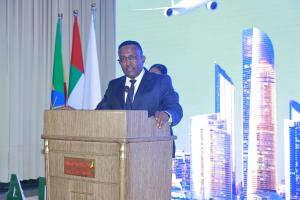
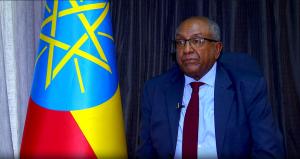
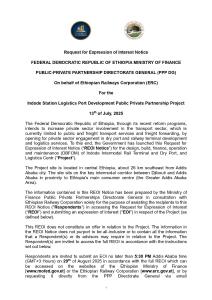

.jpg)

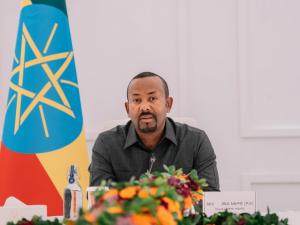
.jpg)
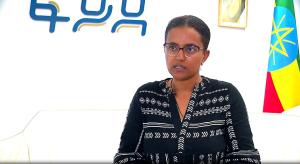
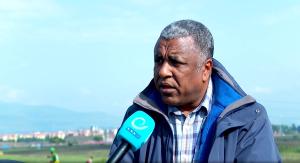

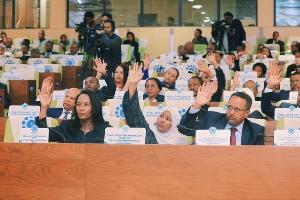


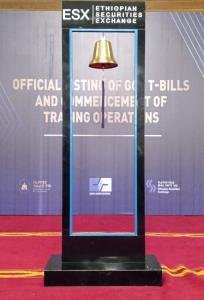
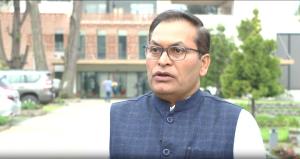
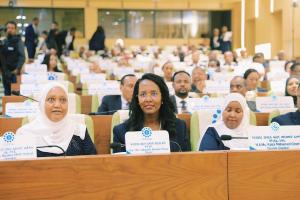
.jpg)

